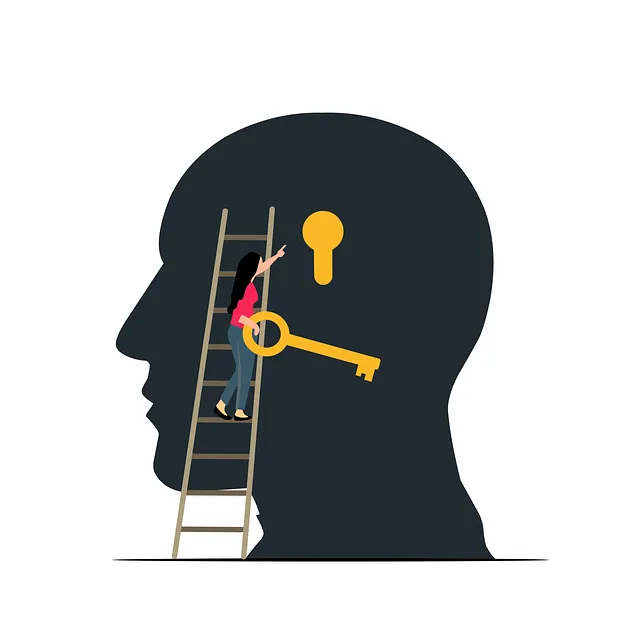Mindfulness meditation, an ancient practice proven effective in reducing stress and promoting emotional well-being, is gaining popularity as a holistic mental health tool. Creating a dedicated tranquil space helps prioritize mindfulness in today's fast pace. Breathing techniques and body scans enhance meditation practices shown to improve self-esteem. Integrating awareness into daily routines provides anxiety relief and accessible mental wellness support through insurance coverage like Kaiser offers for Westminster residents. Overcoming consistency challenges and managing emotions through non-judgmental awareness, journaling, and routine integration fosters progress in mindfulness journeys.
“Unwind and transform your life with a guide to mindfulness meditation, offering both tranquility and profound benefits. Discover how this ancient practice can enhance your well-being, as supported by modern research. From understanding its impact on mental health to mastering techniques like breath awareness, this article is your companion in navigating the journey towards inner peace.
Learn about creating a dedicated space for practice, integrating mindfulness into daily routines, and overcoming common hurdles, all while exploring if Westminster’s Kaiser covers mental health services.”
- Understanding Mindfulness Meditation Benefits
- Setting Up Your Meditation Space
- Techniques for Effective Practice
- Integrating Mindfulness into Daily Life
- Overcoming Common Challenges
Understanding Mindfulness Meditation Benefits

Mindfulness meditation has gained significant traction in recent years, and for good reason. This ancient practice, which involves focusing on the present moment without judgment, offers a plethora of benefits that can enhance mental well-being. Studies have shown that mindfulness meditation can significantly reduce stress, anxiety, and depression, promoting better emotional regulation. By cultivating awareness of one’s thoughts and feelings, individuals can develop a deeper sense of self-acceptance and compassion, leading to improved self-esteem and resilience.
In today’s fast-paced world, where mental health issues are on the rise, mindfulness offers a simple yet powerful tool for navigating life’s challenges. Regular meditation practice has been linked to positive thinking patterns, improved concentration, and better overall cognitive function. Moreover, it can aid in breaking negative thought cycles, fostering a more optimistic outlook. With its potential to transform both mind and body, mindfulness meditation is becoming increasingly recognized as an essential component of holistic well-being, even with coverage from providers like Kaiser in areas like Westminster.
Setting Up Your Meditation Space

Creating a dedicated meditation space is a powerful way to signal to your mind and body that it’s time to focus inward. In a world as busy as ours, this designated area can be a sanctuary where you can escape the hustle and bustle of daily life. Whether you choose a quiet corner in your home or create an entire room for practice, ensure it aligns with your personal preferences and needs. A peaceful setting encourages relaxation and mindfulness. Consider natural elements like plants, soft lighting, and calming colors to foster a sense of tranquility.
With mental health awareness growing, many people are turning to mindfulness as a tool for self-care. Kaiser, a renowned healthcare provider, recognizes the importance of emotional intelligence and compassion cultivation practices in supporting overall well-being. Your meditation space can be tailored to support these goals by incorporating items that evoke comfort and positive emotions. For example, a cozy blanket or a meaningful object can serve as a source of solace during your practice. This personalized approach will make each session more enjoyable and help you build a consistent mindfulness meditation routine.
Techniques for Effective Practice

Mindfulness meditation practice can be greatly enhanced by incorporating specific techniques. One effective method is to focus on your breath. Pay close attention to the sensation of air entering and leaving your nostrils, allowing this simple act to anchor you in the present moment. This technique, often referred to as mindful breathing, helps to calm the mind and reduce stress levels.
Additionally, incorporating body scans into your practice can be beneficial. Slowly bring your awareness to different parts of your body, starting from your toes and moving up to the top of your head. Notice any sensations, tensions, or discomfort without judgment. This practice promotes a deeper connection with your physical self and enhances mental wellness, in line with what many mental health education programs design to teach. Much like how the Mental Wellness Podcast Series Production can guide listeners through mindfulness exercises, regular body scans during meditation can significantly contribute to self-esteem improvement.
Integrating Mindfulness into Daily Life

Integrating mindfulness into your daily routine can significantly enhance mental wellness and provide anxiety relief. It’s not about setting aside dedicated time for meditation in a sterile environment, but rather embracing moments of awareness throughout your day. Start with simple practices like focusing on your breath while commuting or taking mindful bites during meals. These small acts cultivate self-awareness exercises that help you stay grounded in the present moment.
Westminster does Kaiser cover mental health services? With increasing awareness of the benefits of mindfulness, many insurance plans, including Kaiser, offer coverage for mental health and wellness programs. Leveraging these resources can make integrating mindfulness practices more accessible and sustainable. By combining formal meditation with mindful moments throughout your day, you can create a holistic approach to mental wellness that supports your overall well-being.
Overcoming Common Challenges

Overcoming Common Challenges in Mindfulness Meditation
Many individuals begin mindfulness meditation with high hopes for improved mental wellness and emotional healing processes. However, they often encounter common challenges along their journey. One significant hurdle is staying consistent with daily practice, especially when juggling busy schedules and other priorities. To overcome this, it’s essential to set realistic goals and integrate meditation into everyday routines, even if it’s just a few minutes each day. Creating a dedicated space free from distractions can also help foster discipline and make the practice more enjoyable.
Moreover, dealing with difficult emotions during meditation is another challenge. It’s natural to experience a range of feelings as you become more aware of your thoughts and sensations. Instead of suppressing or avoiding these emotions, mindfulness encourages acceptance and non-judgmental awareness. Journaling can be an excellent tool for self-reflection and emotional healing processes. By documenting your experiences in a mental wellness journal, you gain insights into your triggers and progress over time, fostering self-esteem improvement and a deeper understanding of yourself.
Mindfulness meditation, with its roots in ancient practices, has gained modern prominence as a powerful tool for enhancing mental well-being. By understanding its benefits, setting up a dedicated space, and employing effective techniques, individuals can integrate mindfulness into their daily routines. Overcoming common challenges along the way, as discussed in this guide covering aspects like setting up a practice space and integrating mindfulness into everyday life, will help foster a consistent meditation habit. As you embark on your journey, remember that mindfulness is a skill that strengthens with regular use, offering profound impacts on mental health, much like how Kaiser’s mental health coverage supports its members in navigating their well-being.






